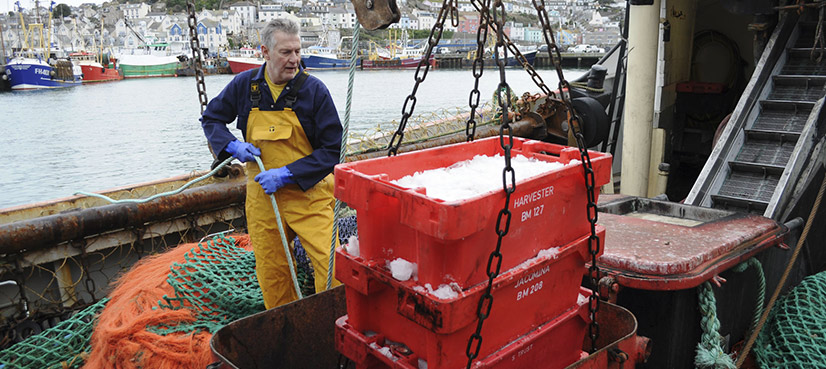UK fishermen fear Brexit betrayal with one year to go

BRIXHAM, MAR 29 (DNA) – On the dockside in Brixham, a bustling fishing port in southwest England, the fear is that Britain’s departure from the European Union may prove a false dawn for hopes of taking back control.
The area voted 63 percent in favour of leaving the EU in the 2016 referendum — a sign of the anger over its fishing quotas and equal access rights blamed for a long-term decline of the industry.
But with exactly one year to go from Thursday before Britain’s scheduled departure date, fishermen see signs that their concerns could be traded away in negotiations with Brussels.
“Fishermen have never had a good deal in all the years I can remember,” said Dave Banks, 69, who had just returned from four days at sea, catching cuttlefish, sole and turbot in nearby waters as skipper of the 24-metre (78-foot) trawler, Stephanie.
In a draft agreement published this month, the government conceded that Britain would effectively remain part of the EU fisheries policy during a 20-month transition period following its formal departure on March 29 next year.
The concession has sparked outcry from fishermen and staunch Brexit supporters who last week staged a protest on the River Thames.
‘Absolutely sick’
Meanwhile, what happens beyond 2021 is still to be negotiated.
“It makes me absolutely sick,” said Rick Smith, a retired fisherman and chairman of Brixham Trawler Agents, which among other roles runs the town’s daily fish auction, calling the move “an appeasement”.
“We hope that we’re going to make enough noise to not allow it. But it depends on the strength of our politicians and if they’re weak, and they start caving in to European demands,” he said from the firm’s office overlooking the port.
Britain’s fishing industry has been shrinking for decades, due to economic as well as political factors.
The number of fishermen on UK-registered vessels has decreased by 75 percent since 1938, while the number of boats has fallen by 29 percent since 1996 to the current total of 6,191.
After years of EU quotas that limited what boats can catch in waters currently shared with other European vessels, many fishermen left the industry.
The British government also scrapped boats during the 2000s to try to help ensure sustainable fish stocks, and redirected financially stretched fishermen to other work.
“So many boats have gone against the wall because of the quotas,” said Banks, as he stood on the boat’s bridge and directed a small crane lifting crates of fish out from its depths.
“It’s absolutely disgusting the way British fishermen have been treated over the last 40 years.”
Fishermen in Brixham and elsewhere bemoan the sale of UK-registered vessels to foreign owners, which then fish from the British quota but land their catch abroad.
They believe quotas are unfairly weighted in favour of the Europeans and together with the access granted to British waters, have combined to doom the industry.
Environmentalists argue quotas have been effective in replenishing heavily-depleted stocks, with North Sea cod stocks now at 35-year highs.
Cod, a long-time favourite of British fish ‘n’ chip shops, riles fishermen in southwestern ports like Brixham.
The 2016 quota for the English Channel gave French boats 72 percent of the stocks, and Britain just nine percent.
Although the UK makes up for it in the North Sea, where it holds over half the quota, the policy seems nonsensical to those in Brixham.
Related News

Business community demands extension for President FPCCI Atif Ikram Sheikh
“Atif Ikram Sheikh has truly represented traders during these challenging times,” say Sajjad Sarwar andRead More

RCCI president urges US-Pakistan economic partnership push
RAWALPINDI, FEB 21 /DNA/ – President of the Rawalpindi Chamber of Commerce & Industry (RCCI),Read More


Comments are Closed